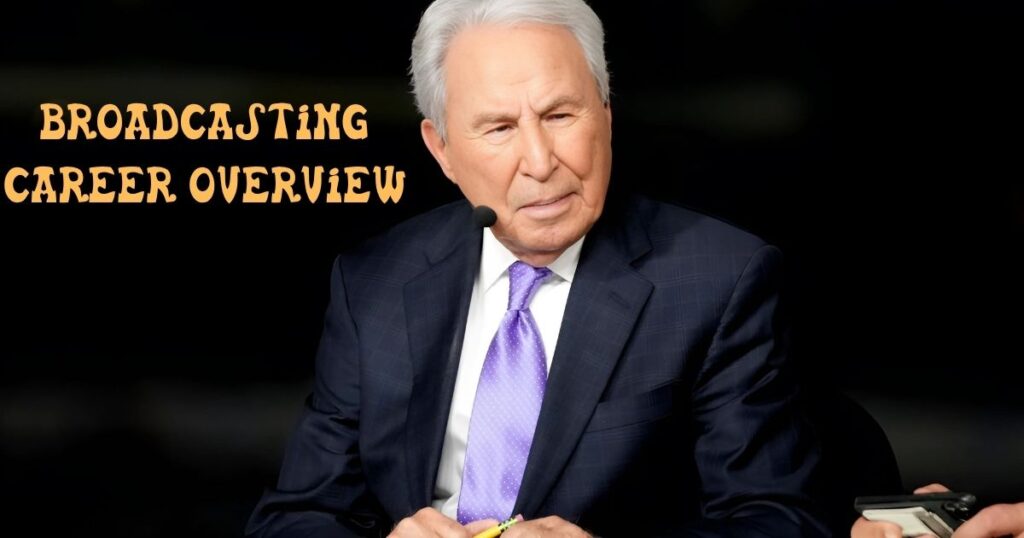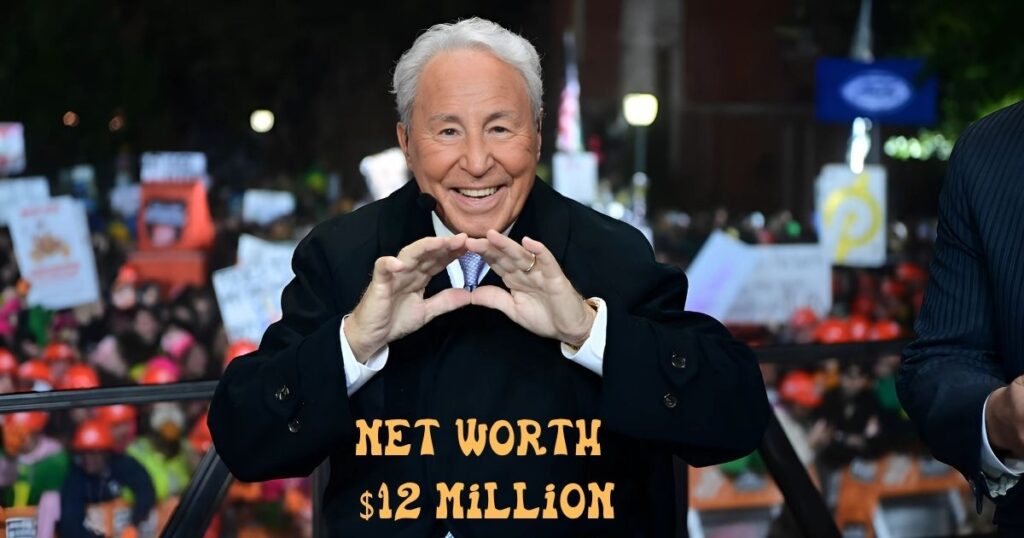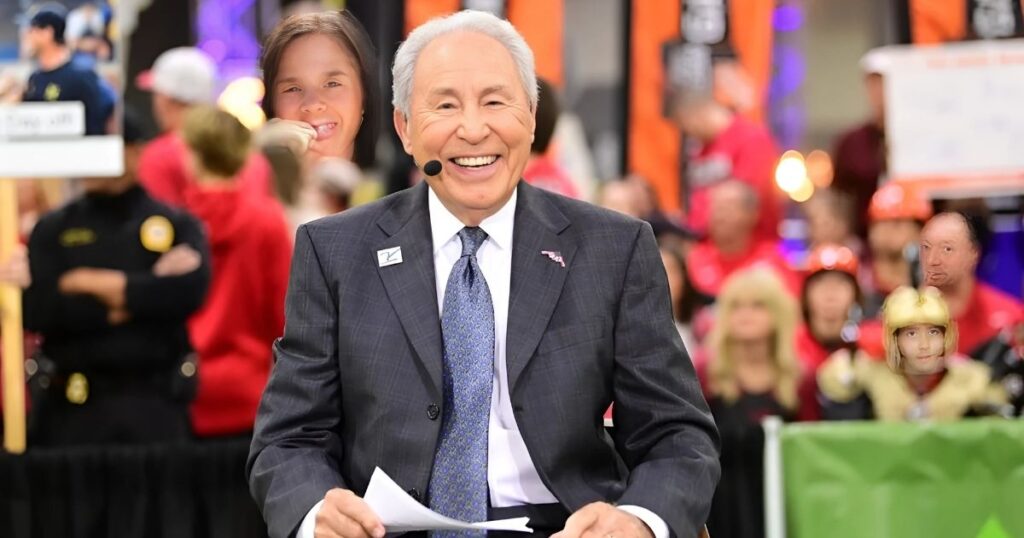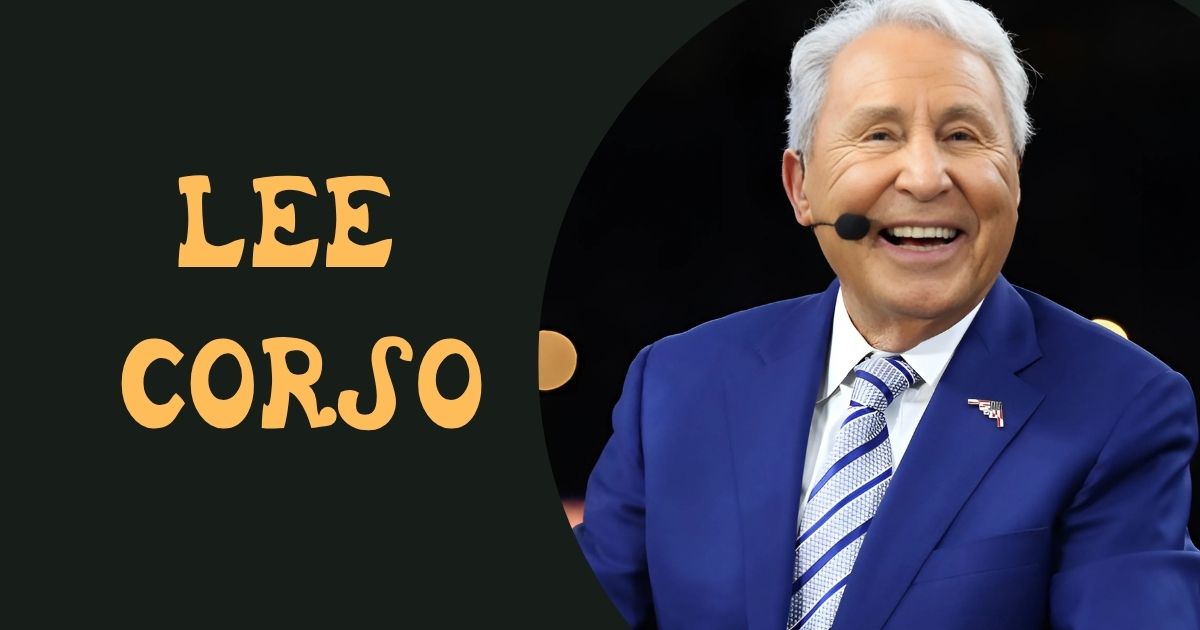Lee Corso has been a fixture on ESPN’s College GameDay for decades. His signature mascot headgear picks attract millions of college football fans every Saturday morning. The legendary television personality built his reputation through authentic passion and unpredictable moments.
His estimated net worth stands at $12 million according to Celebrity Net Worth and Fan Arch. That wealth came from years of coaching and sports broadcasting. His ESPN contract keeps getting renewed because he delivers value nobody else can match in college football coverage.
Lee Corso’s Background and Early Life
Corso’s foundation in college football started at Florida State University. Playing both quarterback and cornerback taught him to see games from multiple perspectives. Those early experiences shaped his analytical approach that fans now recognize on ESPN. His competitive spirit burned bright even before anyone knew his name nationally.
The Florida environment during the 1950s produced tough competitors. Corso absorbed lessons about persistence and adaptability that served him through decades. His willingness to take calculated risks showed up early. That fearlessness became his trademark later when making bold game predictions on national television.
Education and Collegiate Years
Florida State University was Corso’s proving ground from 1953-1957. He played quarterback and cornerback for the Seminoles simultaneously. That dual-role experience taught him offensive and defensive strategies equally. His bachelor’s degree in physical education came first before pursuing more education.
Corso earned a master’s in administration and supervision next. He understood football intelligence alone wouldn’t open all doors. The academic credentials helped him land coaching positions later. Relationships built at FSU supported his entire career trajectory going forward.
Rise Through Coaching Ranks
Coaching became Corso’s first profession after graduating. He started as assistant at Florida State then moved to Maryland and Navy. Louisville gave him his first head coach job in 1969. His 28-11-3 record there turned heads across college football.
Indiana University hired him next for the longest stint of his coaching career. He also spent time at Northern Illinois battling Big Ten powerhouses. His overall 73-85 record doesn’t tell the complete story. The experience taught him what makes programs succeed or fail under pressure.
Broadcasting Career Overview

Television wasn’t Corso’s initial plan after Indiana fired him in 1982. That setback redirected him toward something potentially bigger at ESPN. The network recognized his ability to analyze plays with authority. His transition into sports broadcasting started in 1987 with analyst work.
Broadcasting offered Corso longevity without constant win-loss pressure. His personality flourished in front of cameras naturally. Working with Rece Davis, Kirk Herbstreit, Desmond Howard and Pat McAfee created chemistry. College GameDay averaged over 2 million viewers per episode by 2023.
Transition to Television
Getting fired from Indiana could’ve ended Corso’s football career entirely. Instead it redirected him toward sports commentary opportunities. ESPN brought him aboard in 1987 when the network was still finding its identity. His SportsCenter appearances showed immediate camera chemistry that producers loved.
Corso brought genuine joy to his analysis without bitterness. He balanced expertise with entertainment that audiences appreciated immediately. That approach proved difficult for competitors to copy successfully. His position became secure as college football broadcasting evolved into mainstream programming.
College GameDay Legacy
College GameDay transformed Corso from respected analyst into cultural icon. The show travels to different campus visits weekly following top matchups. His headgear prediction routine started in 1996 and became the most anticipated segment. Students camp overnight just to watch him make picks.
His chemistry with Davis, Herbstreit, Howard and McAfee feels authentic. The family dynamic resonates because their friendships appear genuine. GameDay grew from risky experiment into appointment television. Corso remained the undeniable centerpiece driving that success forward consistently.
Details of Lee Corso’s ESPN Contract
Corso’s relationship with ESPN has lasted nearly four decades now. His contract reflects unique star power he brings weekly. The financial terms remain partially confidential like most broadcasting deals. Industry insiders estimate his peak earnings reached approximately $1 million annually.
ESPN finalizes Corso’s deals before each football season starts. That timing eliminates uncertainty for marketing and advertising teams. Recent agreements shifted to year-to-year terms for flexibility. His age and health require special provisions most analysts never receive.
Contract Timeline and Renewals
Corso joined College GameDay in 1987 as an original analyst. He’s signed multiple extensions through various college football eras. Early contracts included multi-year commitments with escalating salary provisions. Lately renewals happen year-to-year as health becomes bigger consideration.
ESPN needs flexibility if health prevents Corso from fulfilling obligations. The network wants him back as long as he’s able. The 2020s brought short-term renewals that both sides handle professionally. This pattern demonstrates mutual respect between Corso and ESPN management.
Role as ESPN Analyst
Corso’s contract centers almost entirely on College GameDay appearances. Every Saturday during football season he delivers analysis and headgear picks. ESPN doesn’t scatter him across multiple programs unnecessarily. His deal guarantees major on-camera presence during key segments.
Beyond weekly broadcasts his contract includes occasional promotional work. GameDay remains the primary focus throughout each season. This specificity benefits both parties considerably. Corso avoids exhausting schedules that would risk health problems at his age.
Unique Aspects of the Deal
The headgear picks are actually written into Corso’s contract permanently. This provision prevents ESPN from giving that role to someone else. ESPN also grants him flexibility with travel and scheduling as needed. Remote broadcasts from his Florida home are allowed when necessary.
His compensation differs from higher-paid primetime hosts significantly. It reflects his seniority and legendary status in college football coverage. These unique elements demonstrate ESPN’s willingness to accommodate his circumstances. His value transcends standard analyst metrics that networks typically use.
Net Worth and Financial Highlights

Lee Corso’s financial portfolio shows decades of smart decisions. His estimated net worth stands at $12 million according to multiple sources. That wealth accumulated through coaching and sports broadcasting primarily. Broadcasting provided the bulk of his fortune over time.
Real estate investments particularly his Florida residence add substantial value. His wealth reflects steady accumulation over 40-plus years publicly. The $12 million figure places him among broadcasting elite comfortably. Conservative investing protected assets through various economic downturns successfully.
Estimated Net Worth
Breaking down Corso’s $12 million net worth reveals diversified foundations. His primary Florida residence represents a significant seven-figure asset. Broadcasting earnings form the largest component accumulated over decades. Coaching income contributed initial capital though those earnings were modest comparatively.
Real estate investments beyond his primary home probably exist privately. Public appearances and speaking engagements added supplementary income throughout decades. Celebrity Net Worth and Fan Arch confirm this estimate using multiple data points. That figure positions him well above average American retirement wealth.
ESPN Salary and Earnings
Corso’s ESPN compensation peaked at approximately $1 million annually reportedly. His salary grew substantially as GameDay transformed into ratings powerhouse. Starting in 1987 his initial earnings likely sat in low six figures. By the 2010s his pay reflected signature personality status clearly.
The estimated $1 million annual figure places him among highest earners. NFL analysts earn $5-10 million which reflects different market realities. College football generates substantial revenue but can’t match professional league numbers. Corso’s pay represents top compensation within his specific niche consistently.
Income from Other Ventures
Corso supplemented his ESPN salary through multiple revenue streams. Media appearances outside the network included contributions to Yahoo Sports. Public speaking engagements became lucrative opportunities during football season. High-profile speakers like Corso command $20,000-$50,000 per event typically.
Endorsement deals related to college football added moderate income carefully. Real estate investments probably generated passive income and appreciation over decades. Personal business ventures remain largely private but likely exist. These additional sources contributed meaningfully to his $12 million net worth total.
Related Post: Mike Valenti – 97.1 The Ticket: Contract, Net Worth, Detailed Information and Career Insights
Major Career Achievements
Corso’s accomplishments span coaching sidelines and broadcasting studios equally. His on-air work transformed how networks cover college football permanently. Awards and honors confirmed his influence extended beyond entertainment value. His “Not so fast my friend!” catchphrase entered the sport’s vocabulary organically.
The headgear picks evolved into events students anticipate intensely. His coaching legacy includes the 1979 Holiday Bowl victory at Indiana. Hall of Fame inductions validated contributions from multiple perspectives. He made college football more fun and accessible for millions.
Notable Moments from College GameDay
Corso created countless memorable College GameDay moments over decades. The headgear tradition began in 1996 and became immediately iconic. His “Not so fast my friend!” catchphrase caught fire with fans organically. Upset predictions where he nailed shocking calls earned genuine credibility.
Emotional moments like health recovery inspired viewers facing personal challenges. His willingness to look foolish separated him from overly serious analysts. Guest appearances by coaches and players often revolve around him. Over 400 broadcasts created hundreds of individual unforgettable moments.
Memorable College GameDay Statistics
Numbers tell part of Corso’s College GameDay story quantitatively. He’s appeared on over 400 broadcasts since joining in 1987. His headgear pick record shows accuracy above 60 percent consistently. The show averaged over 2 million viewers per episode in 2023.
Corso’s first headgear pick came in 1996 nearly 30 years ago. His age makes him one of television’s oldest active analysts. Merchandise featuring his likeness generates substantial revenue for ESPN. These statistics quantify an impact that feels almost immeasurable otherwise.
Coaching Career Legacy
Corso’s coaching record of 73 wins and 85 losses doesn’t define him. At Louisville from 1969-1972 he posted a 28-11-3 record impressively. Indiana University represented his longest stint battling Big Ten powerhouses weekly. The 1979 Holiday Bowl victory remains one of Indiana football’s proudest moments.
Northern Illinois benefited from his brief time there in 1984 also. His emphasis on academics meant players graduated and succeeded beyond football. Former players praise his mentorship and genuine care consistently. His coaching years provided knowledge that made broadcasting analysis authoritative.
Awards and Honors
Recognition came from multiple institutions throughout Corso’s career. University of Louisville Athletics Hall of Fame inducted him for coaching success. Florida Sports Hall of Fame recognized his status as influential sports figure. ESPN presented him the Contributions to College Football Award in 2010.
Various media groups named him National Sportscaster and Top Analyst. His name appears on walls at schools where he made impacts. The genuine affection fans feel represents his real award honestly. Players and coaches cite him as inspiration across multiple generations.
Key Relationships and Collaborators
Corso’s career success connects directly to people he worked alongside. Broadcasting chemistry can’t be faked between on-air personalities successfully. His relationships with College GameDay colleagues created authentic dynamics audiences appreciate. These partnerships evolved over decades as cast members changed periodically.
Beyond immediate colleagues Corso’s influence touched coaches and younger analysts. Kirk Herbstreit credits Corso with teaching entertainment-expertise balance perfectly. Pat McAfee’s career owes debt to Corso’s authenticity example. Former players like Desmond Howard incorporated his approaches into their styles.
Longtime Colleagues at ESPN
Corso’s relationships with College GameDay colleagues define the show’s identity. Rece Davis took over hosting in 2015 with natural chemistry. Kirk Herbstreit joined in 1996 creating the show’s backbone partnership. Desmond Howard arrived in 2005 bringing Heisman winner’s perspective freshly.
Pat McAfee shook things up starting in 2022 with explosive energy. Guest analysts like Urban Meyer and Eddie George cycled through periodically. These collaborations work because each personality understands their specific role. The result feels like genuine friends rather than coworkers performing.
Influence on College Football Personalities
Corso’s broadcasting style influenced an entire generation of analysts. His headgear picks established blueprints for bold predictions with credibility. Kirk Herbstreit acknowledges watching Corso taught him personality-substance balance crucially. Pat McAfee’s trajectory proves authenticity matters more than corporate polish.
Former players like Eddie George studied his transition into compelling television. Coaches including Urban Meyer and Nick Saban adjusted their personas observing him. His influence extends to younger analysts at competing networks widely. Corso proved you could be funny while being taken seriously.
Impact on College Football Media

Corso fundamentally reshaped how networks cover college football entirely. His presence transformed pregame shows into entertainment destinations worth waking early. The traveling broadcast model became standard practice across networks. Campus visits generate economic impacts as local businesses benefit significantly.
Competition emerged as other networks tried replicating GameDay’s success. Fox Sports launched Big Noon Kickoff as direct competitor. Yet GameDay maintained dominance because Corso’s authenticity can’t be manufactured quickly. His impact measured not just in ratings but cultural penetration.
Shaping College Football Coverage
Corso’s arrival at ESPN in 1987 coincided with critical changes. Before GameDay most pregame shows featured studio anchors reading scores. Corso pushed toward live broadcasts from campuses with real crowds. His mascot headgear picks starting in 1996 created signature moments.
As college football underwent conference realignment and College Football Playoff launch Corso helped audiences understand. His ability to explain complex developments kept things entertaining. The show’s willingness to visit smaller schools democratized coverage significantly. Corso’s presence legitimized programs that rarely got national attention previously.
Comparison: College GameDay vs. Big Noon Kickoff
Fox Sports launched Big Noon Kickoff as direct College GameDay competitor. The shows share similar formats with analyst panels making predictions. College GameDay carries decades of tradition dating back to 1987. Big Noon Kickoff airs earlier trying to capture viewers first.
Fox’s show targets Big Ten markets since they hold conference rights. However Big Noon Kickoff lacks established traditions that make GameDay appointment viewing. Viewership numbers favor GameDay with 2 million versus 800,000-1 million. Corso’s legacy created the template everyone else follows now.
Personal Life and Community Involvement
Corso’s influence extends beyond television into communities he supports actively. His philanthropy reflects genuine commitment rather than celebrity obligation. Throughout his career he donated time to education-focused charities. Children’s hospitals and scholarship programs received consistent support from him.
Health advocacy became important as he witnessed football’s dangers firsthand. His vocal support for concussion awareness stems from decades watching athletes. He’s pushed for better medical protocols at all levels. These efforts represent meaningful contributions to making football safer.
Philanthropy and Advocacy
Corso’s charitable work spans multiple organizations focused on youth development. He supported Boys & Girls Clubs of America through fundraising appearances. College Football Hall of Fame received financial backing and promotional efforts. Make-A-Wish Foundation benefited from his time granting wishes for children.
Corso advocated loudly against racism in sports using his platform. His efforts toward inclusive football culture earned widespread praise. These activities reflect values formed during his coaching years. Unlike celebrities who delegate charity work Corso stays personally involved.
Notable Causes Supported
Boys & Girls Clubs of America became priority because programs align with his beliefs. College Football Hall of Fame benefited from both financial contributions and promotional work. Make-A-Wish Foundation granted opportunities to impact children’s lives during difficult times. Educational scholarship programs supporting minority students received his backing consistently.
Each cause reflects core values Corso developed through decades. His support isn’t performative but sustained long-term with organizations. This commitment demonstrates community involvement stems from genuine belief. His legacy might include charitable impact alongside broadcasting achievements ultimately.
Concussion Awareness and Health
Player safety especially brain injuries became passionate advocacy area recently. His decades coaching and broadcasting exposed football’s health toll. Corso spoke out repeatedly about concussion risks to leadership. He joined awareness campaigns educating players, coaches and parents properly.
His support extends to research initiatives studying brain health. Corso’s willingness to criticize football demonstrates integrity audiences trust. He acknowledges inherent dangers while arguing proper precautions reduce risks. These efforts represent his most important contribution to football’s future.
Media Presence and Public Influence
Corso’s influence extends beyond Saturday morning College GameDay appearances significantly. His recognizable personality makes him relevant beyond college football circles. Clips of his headgear picks circulate widely across social platforms. Even people who’ve never watched full games recognize Corso easily.
His public appearances at charity events demonstrate sustained relevance. Corso connects with audiences across generations seamlessly and naturally. Older fans remember coaching days while younger viewers know ESPN. That cross-generational appeal makes him valuable to college football’s overall presence.
Social Media and Online Engagement
Corso doesn’t operate personal social media accounts on any platforms. Yet his digital presence remains massive through ESPN’s official channels. His headgear picks routinely trend on X during football season. YouTube videos featuring compilations accumulate hundreds of thousands of views.
Fan-created content including memes keeps Corso relevant in digital spaces. During season his segments generate average engagement exceeding 15,000 interactions. His ability to remain relevant without personal accounts proves authentic impact. Even trending topics about LeBron James or Donald Trump sometimes intersect.
Public Appearances and Speaking Engagements
Beyond television work Corso maintains active presence through in-person events. He regularly appears at college football gatherings and charity fundraisers. His speaking engagements blend humor with genuine insights from his career. Schools book him for keynote addresses discussing teamwork and leadership.
Corso occasionally appeared at high-profile venues including White House visits. Media outlets cover these appearances extending his influence beyond attendees. His fees for speaking engagements contribute meaningfully to overall income. Consistent demand proves his brand remains strong across demographics.
Conclusion
Lee Corso’s ESPN contract and $12 million net worth tell only partial story. His journey from Florida State athlete through coaching to broadcasting icon shows authenticity. The financial details matter but can’t capture his real achievement. Corso transformed college football coverage into cultural phenomenon millions anticipate weekly.
His headgear picks and genuine passion made the sport accessible. Now in late 80s he continues defying expectations remaining relevant. His influence extends through philanthropy, player safety advocacy and mentorship. Whether interested in contract specifics or net worth breakdown the answer remains: he stayed true to himself while elevating everyone around him consistently.

